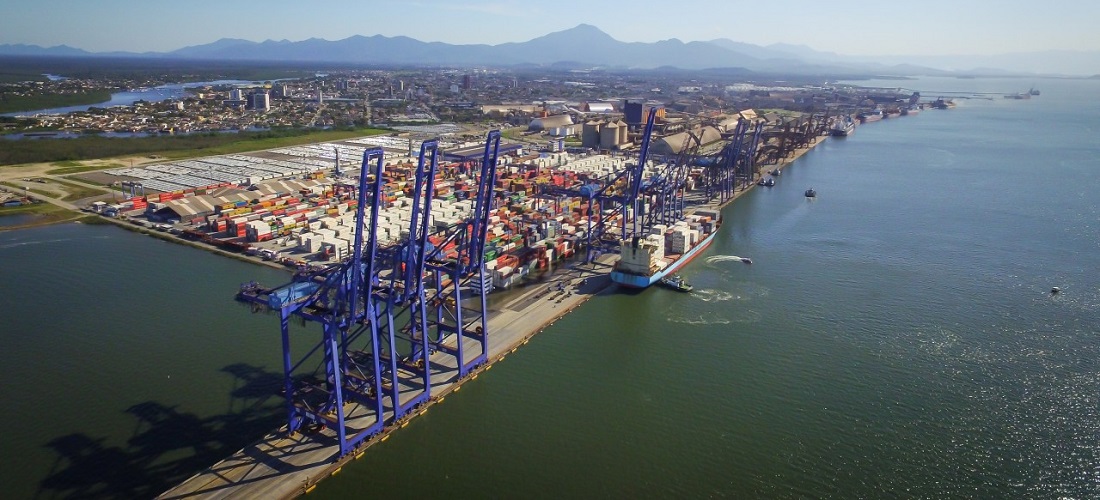
TCP specializes in cotton exports
Jul, 26, 2019 Posted by Sylvia SchandertWeek 201931
Brazilian cotton exports have grown in recent years and reached, in the first six months of 2019, a total volume of 533,579 tons, according to the National Cotton Exporters Association (Anea). Local production, which originates mainly in the state of Mato Grosso and has one of its main destinations being Asia, still faces bottlenecks to leave the country, especially with regard to logistics.
Alexandre Rubio, Commercial Director of TCP – the company that manages the Paranaguá Container Terminal, explains that high logistics costs burden the entire chain. “The cotton export chain has many logistics agents involved, which causes costs to be high and the profitability of the producer to decrease,” he says.” We need to find solutions that reduce the steps and make the operation cheaper and safer.”
The solution offered by TCP Log – TCP’s logistics subsidiary, is the operation of the product in Porto’s primary area, reducing the number of agents involved. “All cotton export logistics in Paranaguá happen in the primary zone. This way, the cotton arrives at the Terminal in a truck, is unloaded near the ships’ berth, stuffed in containers and is ready for shipment”, explains Rubio, who adds that in the backyards or secondary zones, more agents are involved in the shipment logistics chain, which generates higher costs, making the operation more extensive and increasing the likelihood of process failures.
Another advantage pointed out by the director is the reuse of road freight. “Paranaguá is the natural port for cotton exports considering road freight. There is a large flow of trucks between the port of Paranaguá and the state of Mato Grosso, mainly with the importation of fertilizer and export of commodities, resulting in overcompetitive freight when compared to other port regions,” says the executive.
Structure
TCP offers cotton exporters a state-of-the-art port structure with warehouses within the bonded area for cross-docking operations in a sheltered location, away from weather and accompanied operational management. In the primary port of Paranaguá, every export and import product handled by TCP is monitored 24 hours a day, which increases the level of security. “Because it has two scanners for inspection by the IRS, 100% of the loads moved by TCP are compulsorily inspected by the equipment, transmitting more security to customers,” he says.
Chinese market
Data from the Brazilian Cotton Producers Association (Abrapa) show that Brazil, in the 2018/2019 harvest, was the second largest cotton exporter in the world. One of the main markets is China, which accounts for 25% of Brazilian exports.
Alexandre Rubio points out that by integrating the China Merchants Port Holding Company (CMPort) portfolio, China’s largest and most competitive developer, investor, and operator of public ports, trade with Chinese entrepreneurs is facilitated. “In addition to China being one of the world’s largest cotton consumers, consuming about 9m tons, it is the gateway for Brazilian products to access Asia.”
-
Ports and Terminals
Jul, 30, 2019
0
TCP to increase dock capacity with the new portainers
-
Ports and Terminals
Apr, 23, 2019
0
ANP in Uruguay reconsiders dedicated MSC Terminal
-
Other Cargo
May, 03, 2019
0
The demands are plenty, but cotton harvesters are few
-
Jun, 21, 2019
0
Brazil’s agribusiness exports grew 8% YoY in first trimester of 2019



